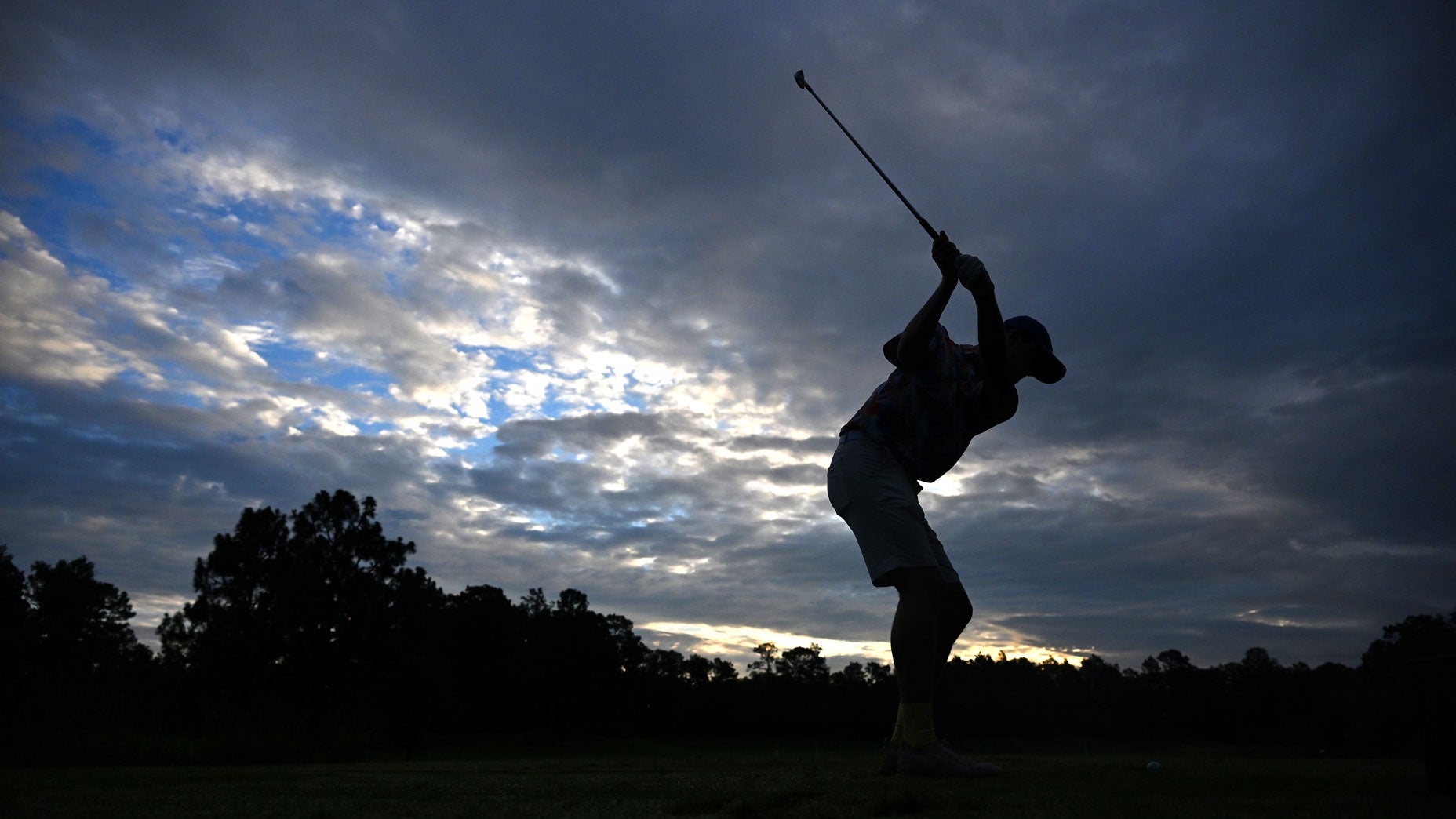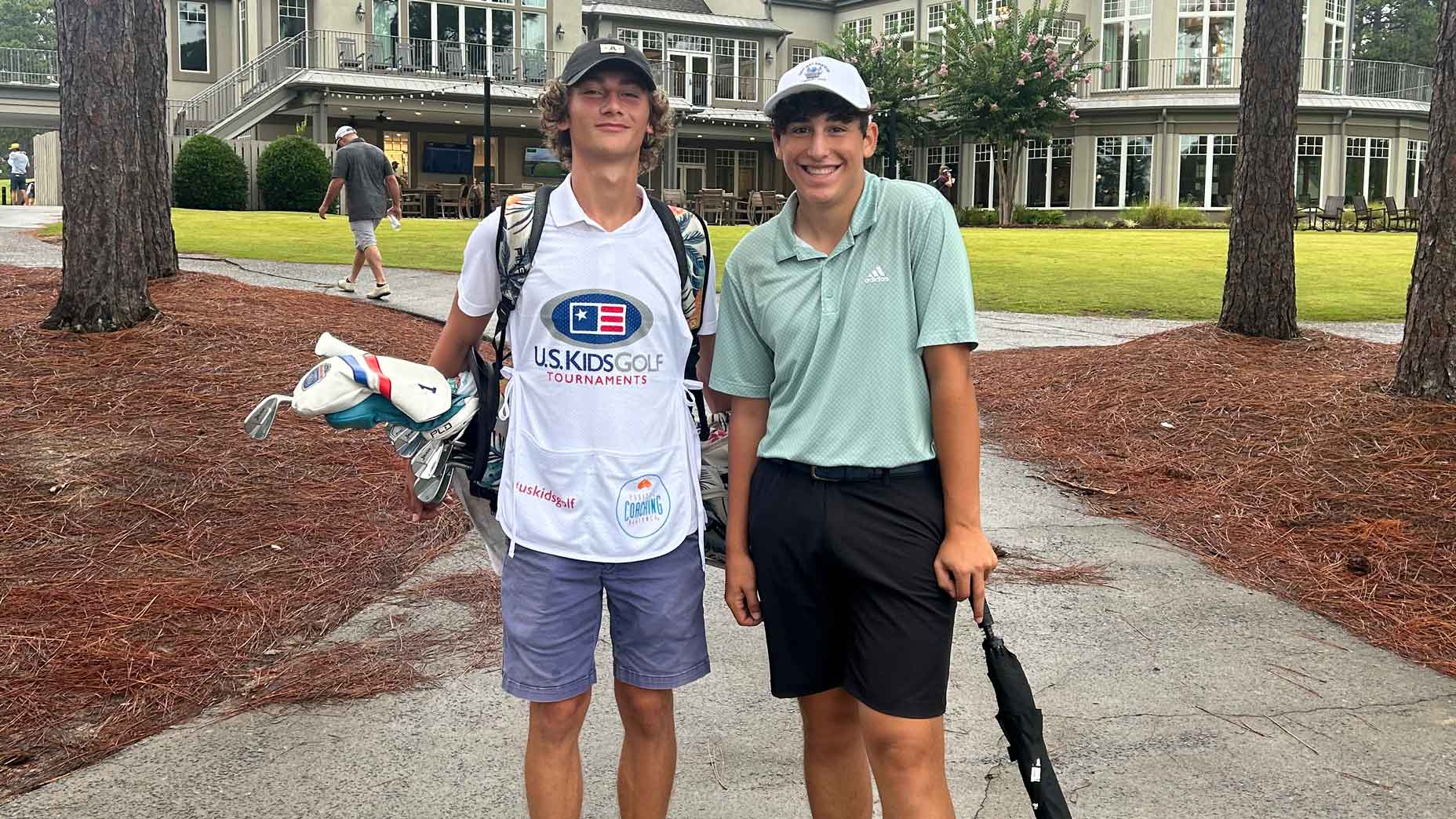Why I attend my son’s golf tournaments but don’t watch him play

The author found that when it came to competetive junior golf it was best to let his son find his own way.
getty images
My name is Evan Rothman, and I don’t watch my son compete at golf.
It’s not that I don’t enjoy golf. I do, despite writing about it being much of my life’s work. It’s not that my 16-year-old son, Ike, and I don’t enjoy each other’s company. We do, despite the fact we spend gobs of time together driving to and from school, golf tournaments, golf lessons, guitar lessons, bowling tournaments, friends’ houses and so on. (Yes, he’s an only child, and I am a freelancer.) You’ll have to trust me on this healthy relationship, and many of the parents I walk golf courses with during junior tournaments probably don’t — because my kid isn’t playing in the group.
It was not always like this. When Ike began competing at age 9, my wife Lorraine and I would spectate while a neighbor friend caddied for him. On his first-ever hole in competition, Ike sliced his opening drive out of bounds, then 6-putted from six feet for a 10. “What is he doing?!?” Lorraine whispered, dumbfounded, as Ike knock-hockeyed back and forth around the hole. “Welcome to competition,” I remember thinking.
I also remembered feeling embarrassed, and then embarrassed for feeling embarrassed. Golf is hard, and tournament golf must be harder, especially when you have the emotional maturity of a 9-year-old. This painful memory comes to mind whenever parents turn to me and say, “He’s usually so much better than this,” “She never misses those,” and so on after some shot goes awry.
Ike finally, mercifully holed out and then looked over to us, tears of shock welling in his eyes. It was not a harbinger of his future play — he has competed in the last three U.S. Kids World Teen Championships at Pinehurst Resort and reached scratch at 15 — but it redlined an essential point: Mom and Dad can’t really help you out there on the fairways and greens…or in the rough.
Sure, we tried to do what we could from a distance to calm, to encourage, to reassure, and a different kid might have responded to our counsel. Our son mainly looked to us for sympathy, shoulders slumped, when things weren’t going his way. It wasn’t a winning dynamic in any sense of the word, and it wasn’t too long before we all agreed it was best for Ike’s golf, and his enjoyment of it, that we leave him to do his thing.
Sometimes my wife and I will hit a local museum and grab a meal to pass the time, but often I’m traveling on my own with Ike and there’s not much to do in the vicinity or it’s just too beautiful a day not to walk a golf course. I always ask the players’ parents if it’s okay for me to join them to spectate, explaining that my son is competing in the tournament but that I don’t watch him. (I’ve taken to doing this ASAP after the disappointment on one mother’s face when I responded to her, sorry, no, I’m not a college coach here to scout.) No one has ever objected, which I ascribe to not looking like a psychopath, and many seem happy for the company….
And then you see the wheels start turning. Is the man in front of me enlightened? Or, appearances aside, has he lost it? Maybe his kid is such a brat that he can’t stomach it?

Some parents will try to tease out the answers. Most don’t. Either they immediately grasp the basics of the situation and/or they don’t much care, which is understandable. “My watching doesn’t work for him,” is my standard line when asked what brought things to this point. It’s the rare parent who hasn’t had a moment or 10 watching their kid snap-hook a drive, or being snapped at, when the idea of fleeing the scene came to mind. “I wish I didn’t have to watch” is something I’ve heard more than once. “You don’t” is something I’ve never replied.
I’ve thought it, of course. I’ll admit there is a small part of me that feels morally superior: Look at me, setting aside my own desire to see my progeny doing what he does best so that he can perform his best. How selfless!
What a guy. Still, it bums me out at times, too. I’d like nothing more than to be half of those parent-child duos who seem to get along swimmingly on the course, tossing out the occasional “attaboy,” a subtle nod of encouragement, a cocked paternal eyebrow to fend off a potential meltdown at the pass. These family ham-and-eggers do exist — but to my eye are vastly outnumbered by parents who think, wrongly, that they number among this cohort.
Maybe it’s Pollyanna, but I’d like to think I could have held up my end of the bargain. As a teenager, I spent years looking up at my dad making operatic faces of anguish and excitement during my tennis matches — until I finally barred him from attending any more tournaments. To his credit, he didn’t play the “I pay for your lessons” card; to his discredit, he tried to watch the next tournament on the sly from the stands a few courts down. If memory can be trusted, upon spotting him I tossed him out with my thumb like a baseball ump.

I believe, back before my own spectating exile, now going on five years, that I kept a pretty good poker face. Really, though, does it matter? Ike knows, like every kid knows, that his parents care a ton, whether it’s written on their face or not, whether they cop to it or not. “Have fun!” is all well and good and true, as far as it goes, but it goes further than that. We want our kids to succeed, too, for their sake and for ours, and they know it.
For some, that knowledge is, like, whatever. For others, it can weigh heavily, or just be a handy excuse if things don’t go their way. The last thing most parents want for their child is something that was supposed to be fun to turn sour, and for something character-building to become ego-deflating. Competitive golf has provided my son many highs and lows, but it has consistently helped him become an independent person who (generally) takes ownership for his decisions and actions.
These are the kind of thoughts I have wandering alongside my fellow parents instead of my offspring, watching moms and dads live and die with every shot, whether they make a big show of it or not. As a parent, I can now only sympathize with their struggle to maintain their equilibrium and sense of perspective — but as a golfer myself, of course, I empathize with it.






